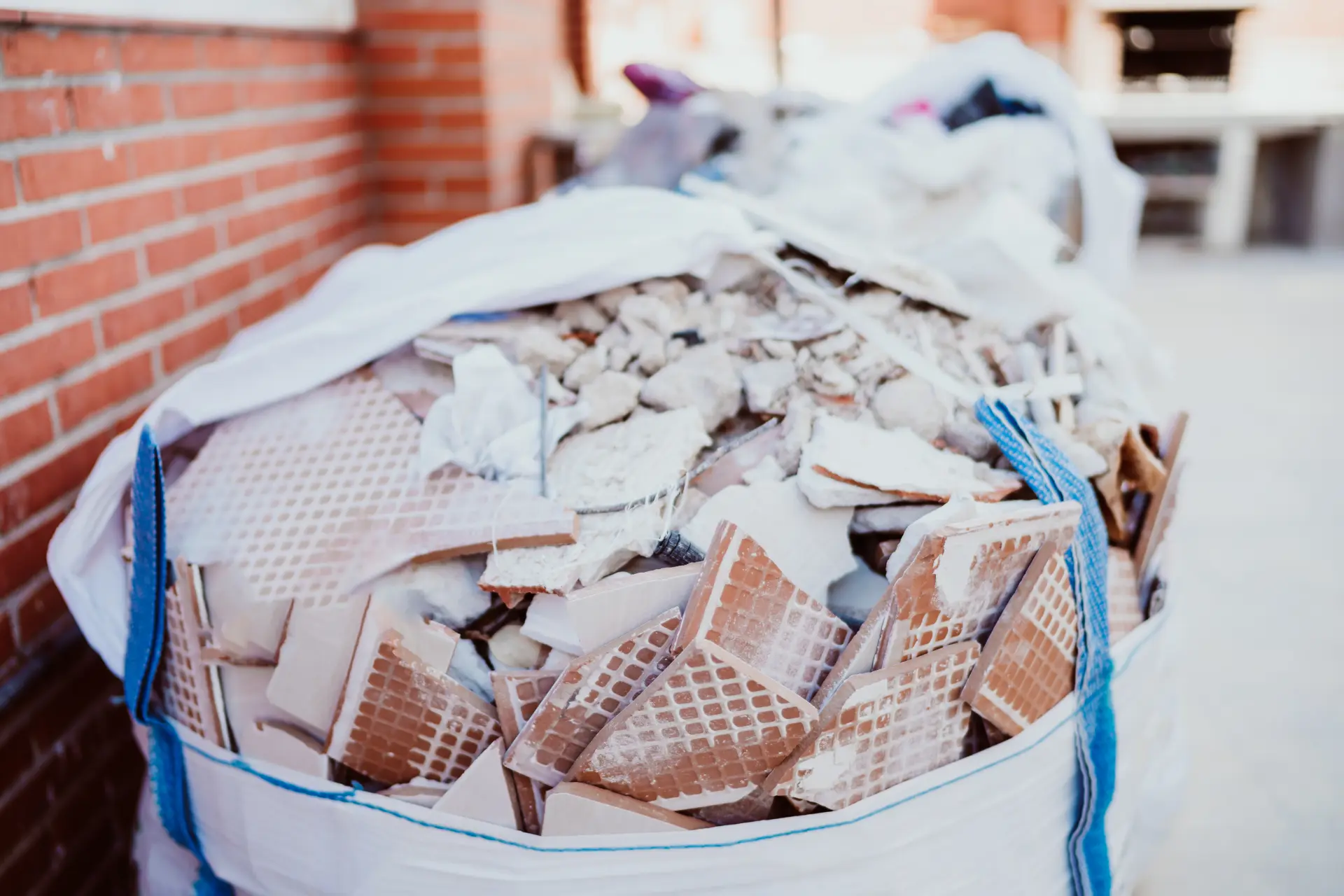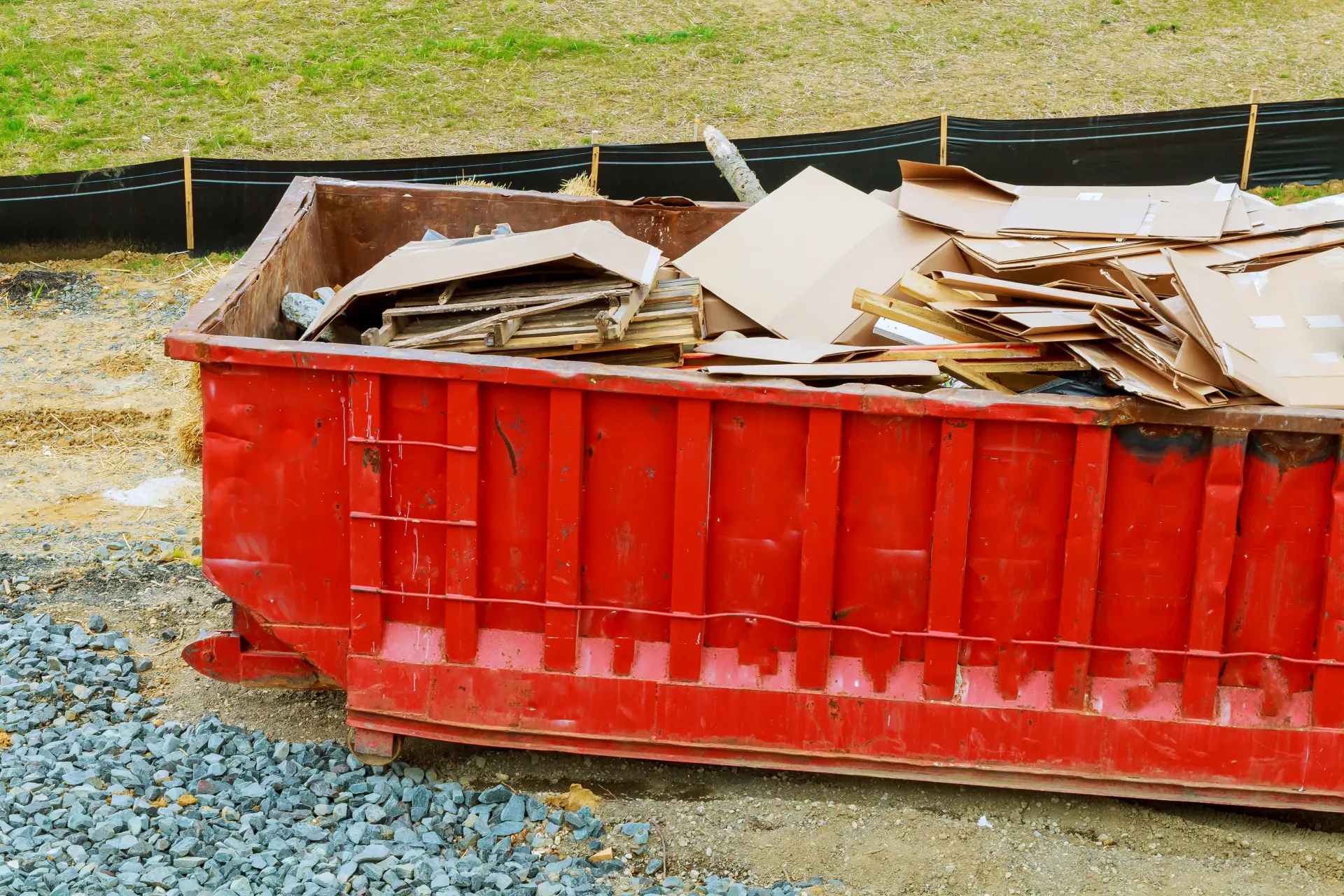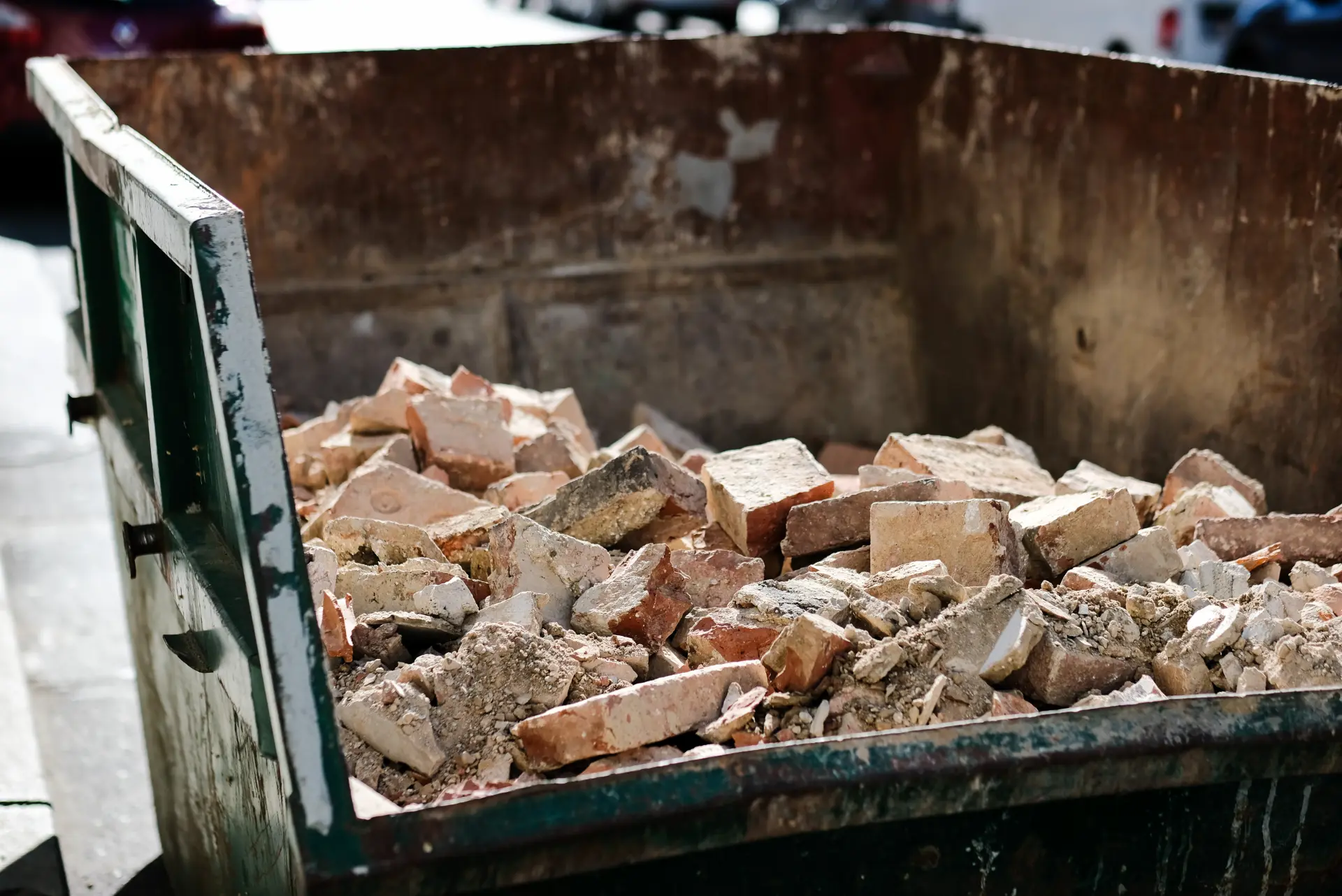Disposing of construction waste the right way is essential for safety and for protecting the environment. Whether you’re tidying up after a garden makeover or working on a larger home improvement job, knowing how to handle the waste properly makes a big difference.
Learn how to safely dispose of construction waste from building and renovation projects. Includes tips on sorting, recycling, skip hire, and reusing soil, plants, and mulch.
What Counts as Construction Waste?
Construction waste includes any leftover material from building, landscaping, or renovation work. This can be broken bricks, tiles, timber, plasterboard, concrete, glass, and scrap metal.
When you're working outside, it often includes natural materials such as soil, turf, garden waste, tree branches, and old plants. These may not seem like typical construction waste, but they should still be disposed of correctly.
Even packaging materials, like plastic wraps and cardboard boxes, are part of the waste you need to manage.
Why Safe Disposal Is Important
Dumping construction waste in the wrong place can seriously harm the environment. Chemicals from paints or treated wood can leak into the ground, polluting the soil and nearby water sources.
Hazardous waste such as asbestos, certain adhesives, or contaminated soil needs special care. These materials can cause health issues if touched or breathed in.
Aside from health and safety risks, improper waste disposal can result in fines if you break local regulations. Keeping the site clean and disposing of materials responsibly also helps your project run more smoothly.

Sort Your Waste Before Disposal
Taking time to sort your waste can make disposal much easier. Grouping similar items together allows you to recycle more and reduces the amount that ends up in landfill.
Create separate piles or containers for wood, metal, brick, garden waste, and general rubbish. Put soil, leaves, and plants aside if you want to make compost or mulch - these can help improve your garden later.
When waste is properly sorted, removal services are often cheaper and faster because there's less sorting left to do on their end.

Skip Hire for Larger Projects
For bigger jobs, a skip is often the most practical option. Skips can hold a lot of waste and come in different sizes depending on how much you need to dispose of.
They’re ideal for collecting a mix of materials - from rubble and old tiles to soil, turf, and packaging. Just check with your skip provider about what they accept. Some skips can't take certain items, like plasterboard or electrical waste.
A well-placed skip also helps keep your site clean and organised, giving you more space to work.
Recycling and Reusing Building Materials
Many materials can be reused or recycled instead of going straight to waste. Leftover bricks, paving stones, or timber offcuts can often be used in future building or garden projects.
Garden waste such as leaves, small branches, and old plants can be used to make compost. Mulch made from wood chips or bark can also be spread over soil to help it retain moisture and keep weeds down.
Recycling not only saves you money but also reduces the demand for new materials, which helps the environment. You might also find local community groups or businesses that accept leftover supplies.
We offer reliable construction waste collection services across Truro and all of West Cornwall. Whether you're clearing rubble, timber, bricks, or bulky building materials, our fully-licensed team provides efficient, affordable and eco-conscious waste collection for homes and commercial projects.

